Can You Winterize a Boat Motor Without Starting It?
Winterizing your boat motor helps to protect your boat's engine from damage during the winter months. But what if your boat motor won't start? Can you still winterize it without starting it up? Let's find that out in this article.
You can winterize a boat motor without starting it. Starting the engine during winterization can actually cause more harm than good, as it corrodes your engine and damages the fuel pumps. Therefore, it is recommended that boat owners winterize their boat motor without starting it.
One of the most common mistakes boaters make when winterizing their boat motor is not disconnecting the battery, which can cause it to drain over the winter. Let's see what other common mistakes you should avoid committing when winterizing your boat.
Summary
- Starting your boat motor during winterization has several pros: it flushes out engine contaminants, helps identify potential problems, and gives you peace of mind.
- Starting your boat motor also has cons, including the risk of causing damage to your engine, draining the batteries, and environmental consequences due to improper disposal of fluids.
- If you're not comfortable starting your boat motor during winterization, try using fuel stabilizers to prevent the fuel from going bad over the winter, hence protecting your engine.
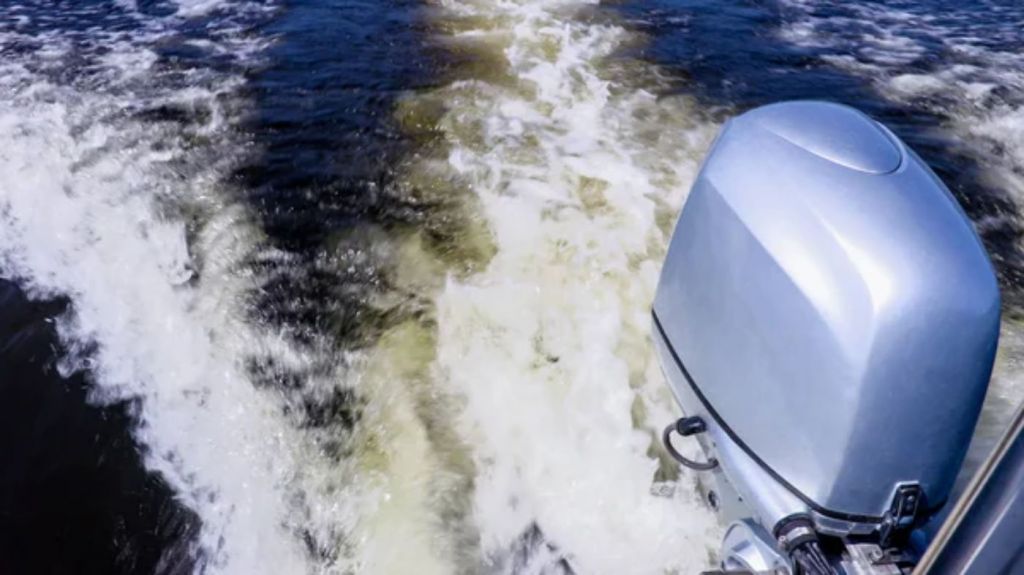
On this page:
You Can Winterize Your Boat Motor Without Starting It
One common question that boat owners have is whether they can winterize their boat motor without starting it. The short answer is yes, you can winterize a boat motor without starting it.
In fact, there are several methods that you can use to winterize your boat motor without starting it up. However, there are some pros and cons to consider, such as the following:
| Pros | Cons |
|---|---|
| Flushes engine to remove contaminants | Can cause damage to engine |
| Helps lubricate engine | Drains batteries |
| Helps identify potential problems | Can cause fuel system issues |
| Prevents fuel system issues | Can have environmental consequences |
| Extends life of boat motor | Time-consuming and requires a lot of effort |
| Gives peace of mind |
Pros of starting your boat motor during winterization
It flushes the engine to remove contaminants
When you start your boat motor during winterization, you can flush the engine with fresh water to remove any salt or other contaminants that may have accumulated during the boating season. This can help prevent corrosion and other damage to the engine.
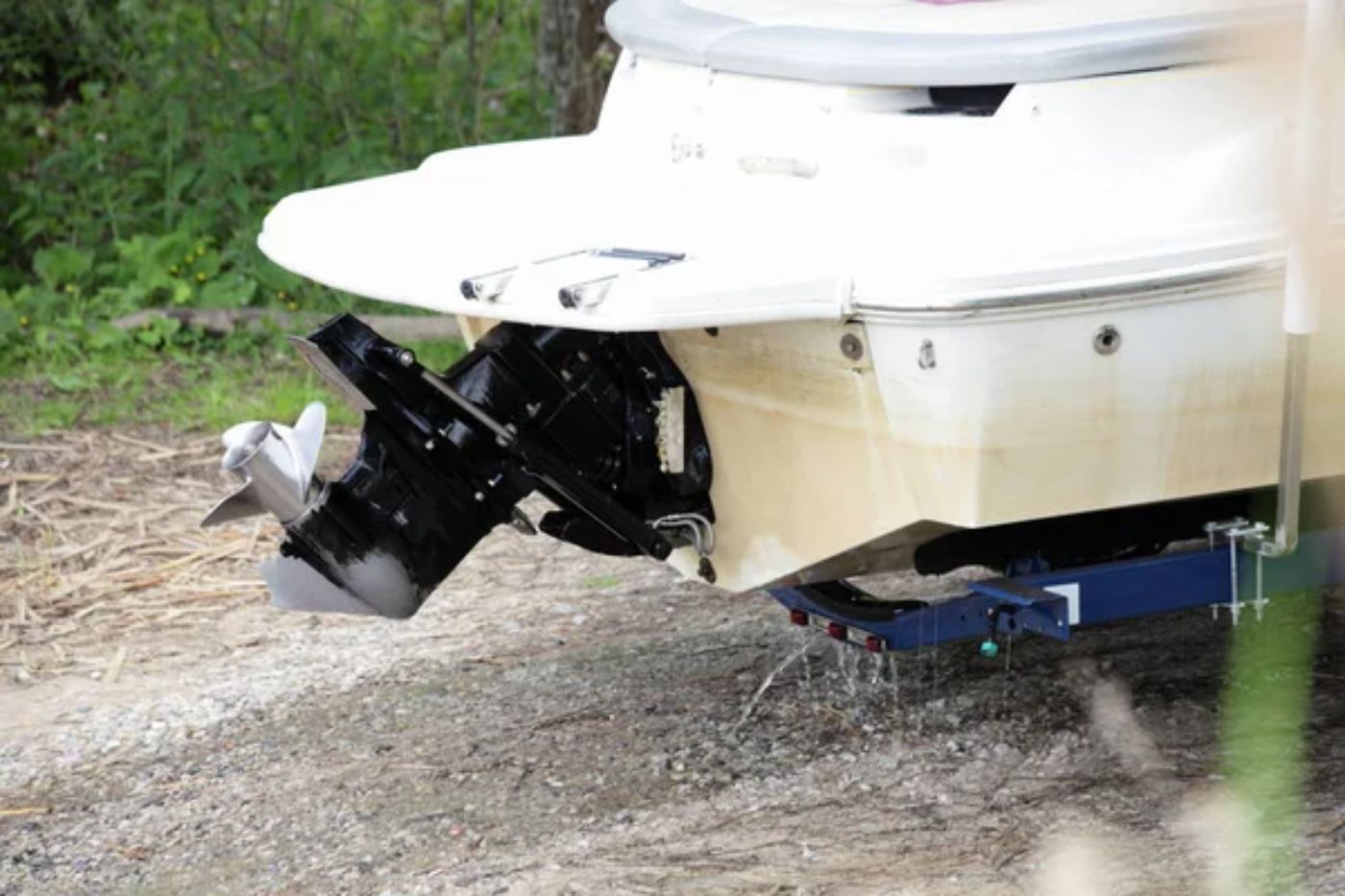
It helps lubricate the engine
Starting the engine allows the oil to circulate and lubricate the engine components, which can help prevent rust and other damage.
It helps identify potential problems
Starting the boat motor during winterization can help identify any potential problems with the engine before they become major issues. This can save you time and money in the long run by allowing you to address any issues before they cause serious damage.
By identifying engine problems, you can decide whether to replace it or try to rebuild it. Rebuilding an inboard diesel engine costs around $2,000-$5,000, which is way lesser than replacing it.
It can prevent fuel system issues
Starting the engine during winterization can help prevent fuel system issues such as clogged fuel lines or carburetors. Running the engine for a short time can help ensure that the fuel system is clean and functioning properly.
It can extend the life of your boat motor
By properly winterizing your boat motor, including starting it during the process, you can help extend its lifespan. This can save you money in the long run by avoiding costly repairs or having to replace the motor altogether.
It can give you peace of mind
Knowing that you have properly winterized your boat motor, including starting it during the process, can give you peace of mind during the off-season. You can rest assured that your boat will be ready to go when the boating season starts again.
Cons of starting your boat motor during winterization
It can cause damage to your engine
Starting the engine during winterization can be risky, especially if you don't follow the manufacturer's instructions carefully. If you don't warm up the engine properly or if you don't use the right type of antifreeze, you could cause damage to the engine.
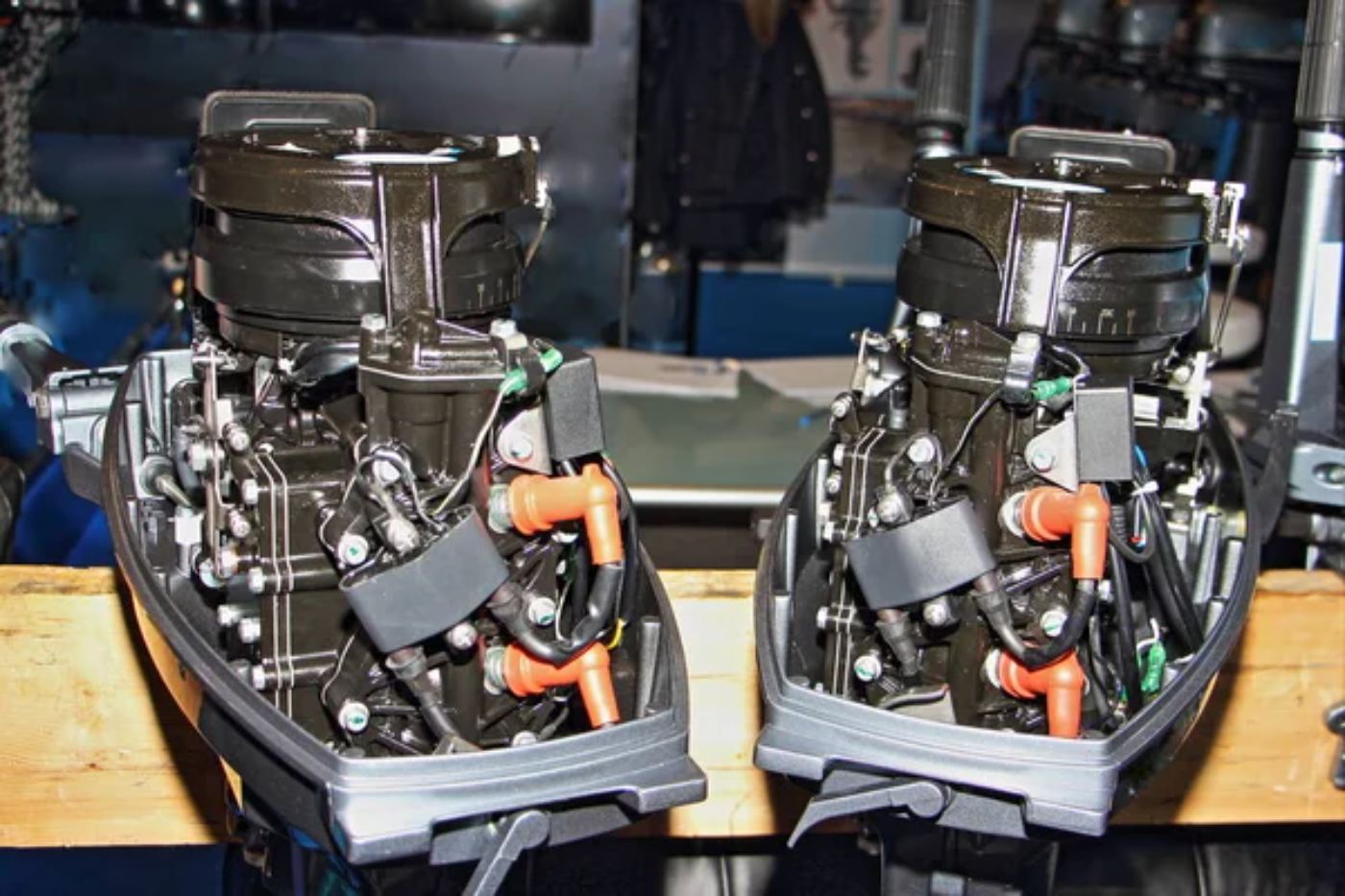
It drains the batteries
Starting the engine can drain the battery, which can be a problem if you're storing your boat for an extended period. If the battery dies, you may have trouble starting the engine in the spring.
It can cause fuel system issues
If you don't properly treat the fuel system with stabilizer, the fuel can break down and cause problems in the spring when you try to start the engine.
It can also have environmental consequences
If you don't properly dispose of the used antifreeze, oil, or other fluids, you could be polluting the environment. Always follow proper disposal procedures to minimize your impact on the environment.
It can be time-consuming and requires a lot of effort
You need to make sure you have all the necessary tools and supplies, and you need to follow the manufacturer's instructions carefully. If you're not comfortable with this process, it may be better to have a professional handle your winterization.
Alternatives To Starting Your Boat Motor During Winterization
If you're not comfortable starting your boat motor during winterization, there are some alternatives to consider, such as the following:
| Alternative | Advantages | Disadvantages |
|---|---|---|
| Fogging oil | Protects engine from corrosion Easy to use |
May not be as effective as starting engine May require some technical knowledge |
| Fuel stabilizer | Prevents fuel from going bad Protects engine from damage |
May not be as effective as starting engine May require multiple treatments |
| Draining engine | Prevents damage from moisture Can be effective if done correctly |
Requires technical knowledge May be time-consuming |
Use a fogging oil
Fogging oil is a type of oil that you can spray into the engine to protect it from corrosion during the winter. This can be a good alternative to starting the engine, especially if you're not comfortable doing so.
The process of using fogging oil is fairly simple. First, you'll need to locate the engine's air intake and remove the air filter.
Then, you'll need to start the engine and let it idle for a few minutes to warm up.
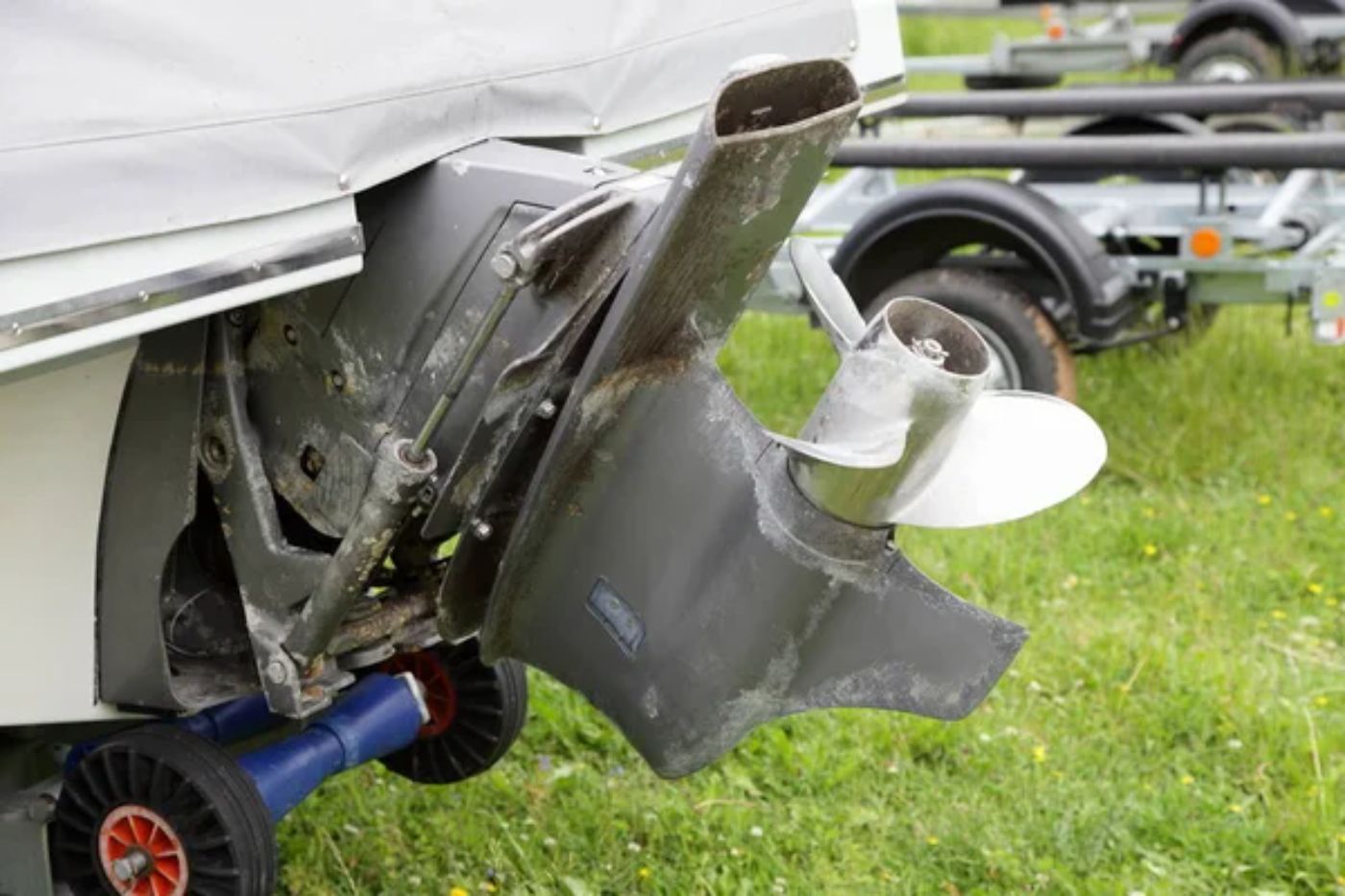
Once the engine is warm, you can spray the fogging oil into the air intake while the engine is running. This will coat the inside of the engine with a protective layer of oil, which will help to prevent rust and corrosion over the winter months.
Use a fuel stabilizer
Fuel stabilizers are chemicals that you can add to the fuel tank to prevent the fuel from going bad over the winter. This can help protect the engine and prevent damage.
To use a fuel stabilizer, you'll need to first fill up your fuel tank with fresh fuel. Then, you'll add the recommended amount of fuel stabilizer to the tank.
Once the stabilizer is added, you'll need to run the engine for a few minutes to ensure that the stabilizer is distributed throughout the fuel system.
Drain the engine
If you're not comfortable using fogging oil or fuel stabilizer, you can drain the engine of all fluids and store it dry for the winter. This can be a good alternative, but you need to follow the manufacturer's instructions carefully to avoid causing damage to the engine.
The process of draining the engine starts with removing all of the fluids from the engine, including the oil, coolant, and fuel.
Once the fluids have been drained, you'll need to follow the manufacturer's instructions for storing the engine dry. This may involve adding a preservative to the engine to prevent rust and corrosion.
Common Mistakes To Avoid To Prevent Damaging Your Boat Motor

Not changing the oil
Not changing the oil can cause the engine to overheat and lead to corrosion, which can damage the engine's internal parts.
Over time, old oil can become contaminated and lose its lubricating properties, which can lead to increased friction and wear on the engine's moving parts. For this reason, you need to change the oil before storing the boat for the winter.
Not draining the fuel
Not draining the fuel can lead to condensation, which can cause water to accumulate in the fuel tank and lead to corrosion. Old fuel can also become stale and cause problems with the engine's fuel system, such as clogging fuel lines and filters.
Don't wait for the fuel to go bad and cause problems with the engine, so start draining the fuel tank and run the engine until it's out of gas before storing the boat.
Not using antifreeze
Antifreeze helps protect your boat's engine from freezing temperatures. It helps to prevent the engine's coolant from freezing and expanding, which can lead to damage to the engine's internal.
Not using antifreeze can cause the engine block to crack or freeze. You need to consider using antifreeze and pick the right type and follow the manufacturer's instructions for how much to use.
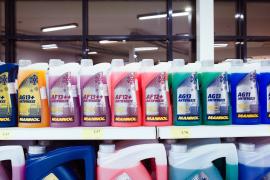
Antifreeze to Winterize Your Boat: What & How Much
Not disconnecting the battery
Leaving the battery connected can cause it to drain over the winter, which can damage the battery and make it difficult to start the engine in the spring.
Additionally, leaving the battery connected can cause electrical components to draw power from the battery, which can drain it even faster. Always make sure to disconnect the battery and store it in a dry, cool place.
You can read more about common mistakes during boat winterization in this article.
Did you find the answer to your specific question?
👍 0 👎 0


Leave a comment